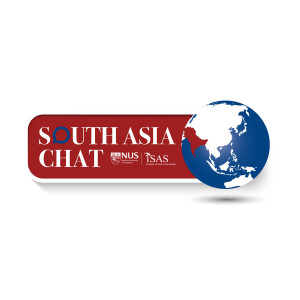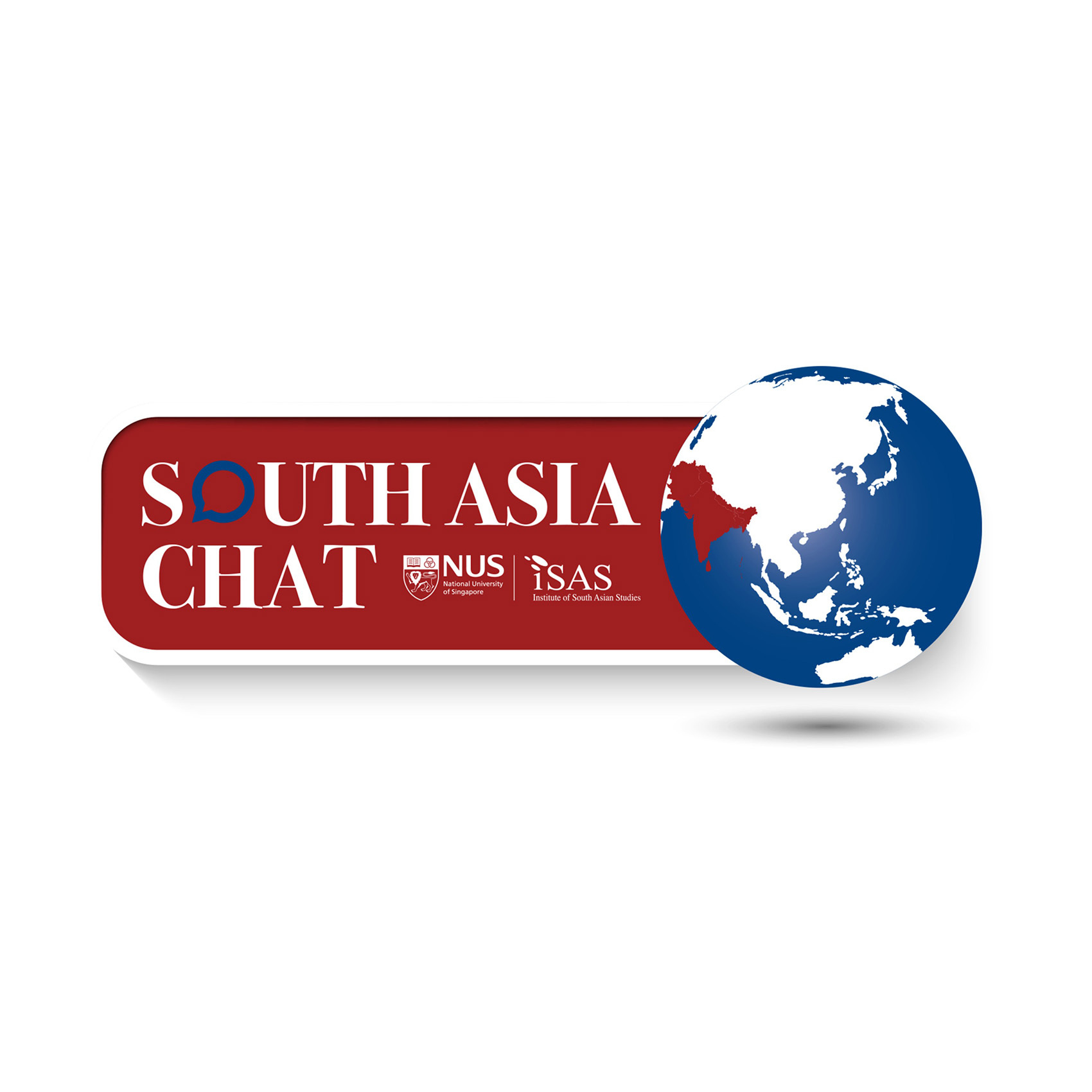Episodes

6 days ago
6 days ago
In this episode of South Asia Chat, host Iqbal Sevea speaks with Amitendu Palit, Senior Research Fellow at the Institute of South Asian Studies, to assess how the Indian economy navigated global shocks in 2025 and what lies ahead in 2026. The discussion explores the impact of US tariffs, domestic demand, inflation trends, trade reforms, and India’s evolving free trade strategy, offering insights into the challenges and opportunities shaping India’s economic trajectory in a changing global order.

Thursday Dec 18, 2025
Episode 308: COP30 and the Changing Politics of Climate Action
Thursday Dec 18, 2025
Thursday Dec 18, 2025
Held in the Amazon, COP30 carried significant political and symbolic weight for global climate negotiations. Positioned by the Presidency as an “implementation COP,” the conference was intended to pivot the focus from setting goals to tackling the practical challenges of delivery. The summit highlighted both renewed momentum and familiar tensions around finance, forests, trade measures and fossil fuels alongside participation from a broad range of stakeholders. To discuss these developments, in this episode of South Asia Chat, Mr Saeeduddin Faridi, Research Analyst, ISAS-NUS, is joined by Ms Avantika Goswami, Programme Manager, Climate Change, Centre for Science and Environment, New Delhi. They discuss the outcomes on trade and fossil fuels, as well as the expanding role of developing countries in pushing the frontiers of climate leadership.

Friday Dec 12, 2025
Episode 307: India-Russia Relations : Exploring New Facets Of Cooperation
Friday Dec 12, 2025
Friday Dec 12, 2025
Russian President Vladimir Putin visited India on 4th and 5th December- marking it his first trip in the last four years. This visit comes at a very delicate geopolitical moment. With the Ukraine war approaching its fourth year and Russia -US relations warming, major power relations are likely to see a critical shift. In this episode of South Asia Chat, Ms Devyani Chaturvedi, Research Analyst at ISAS, speaks with Professor C Raja Mohan, Visiting Research Professor, ISAS on what the visit meant and what would be the future of this partnership.

Tuesday Nov 25, 2025
Tuesday Nov 25, 2025
In this episode, we speak with Rochona Majumdar, author of Art Cinema and India's Forgotten Futures: Film and History in the Postcolony. The author is in conversation with Tanujja Dadlani, Research Analyst, ISAS.

Tuesday Nov 25, 2025
Episode 306: Unpacking Bihar Assembly Elections 2025
Tuesday Nov 25, 2025
Tuesday Nov 25, 2025
The 2025 Bihar Assembly elections have delivered a decisive victory for the National Democratic Alliance. The outcome has renewed discussions on the state’s long standing social coalitions, organisational strategies, and shifting political narratives that shaped voter behaviour. From the performance of the Grand Alliance to the limited electoral impact of new entrants such as the Jan Suraaj Party, the results offer important insights into Bihar’s political landscape. At the same time, debates around the voter roll revision process have raised questions about electoral credibility and institutional trust. In this episode of South Asia Chat, Raghaw Khattri, Research Analyst at ISAS, speaks with Dr Neelanjan Sircar, Associate Professor at Ahmedabad University, to unpack the elections.

Friday Nov 14, 2025
Episode 305: Afghanistan-Pakistan Border Tensions
Friday Nov 14, 2025
Friday Nov 14, 2025
The Afghanistan-Pakistan border, long defined by porous boundaries and competing national interests, has once again become a flashpoint for regional instability. In recent months, tensions have escalated over border management, cross-border conflict, and the broader geopolitical implications of the Taliban’s return to power in Afghanistan. To discuss the evolving border tension and its context, Ms. Tanujja Dadlani, Research Analyst, ISAS, is in conversation with Dr. Zahid Shahab Ahmed, an honorary fellow at Deakin University, and a researcher specializing in peace and security across South Asia and the Middle East. His work explores how sectarianism and extremism shape domestic, regional, and global stability.

Tuesday Nov 04, 2025
Tuesday Nov 04, 2025
In this episode, we speak with Aditya Balasubramanian, author of Toward a Free Economy: Swatantra and Opposition Politics in Democratic India. The author is in conversation with Sandeep Bhardwaj, Visiting Research Fellow, ISAS.

Tuesday Oct 14, 2025
Episode 304: Advancing India–China Climate Cooperation
Tuesday Oct 14, 2025
Tuesday Oct 14, 2025
This episode explores the evolving contours of India–China engagement in the climate and energy domain while both countries take steps towards normalising their relationship following the 2020 clashes at Galwan. As both countries undertake policies towards decarbonisation of their respective economies, cooperation in domains of trade, investment, technology and diplomacy can advance shared goals. To unpack this bilateral dynamic, Dr Karthik Nachiappan, Research Fellow, ISAS-NUS, is in conversation with Dr Constantino Xavier, Senior Fellow, and Dr Pooja Ramamurthi, Fellow, Centre for Social and Economic Progress, New Delhi.

Tuesday Sep 30, 2025
The Bookshelf: Shikwa-e-Hind: The Political Future of Indian Muslims
Tuesday Sep 30, 2025
Tuesday Sep 30, 2025
In this episode, we speak with Mujibur Rehman, author of Shikwa-e-Hind: The Political Future of Indian Muslims. The author is in conversation with Amit Ranjan, Research Fellow, ISAS.

Wednesday Sep 24, 2025
Episode 303: Sri Lankan President Dissanayake's First Year in Office
Wednesday Sep 24, 2025
Wednesday Sep 24, 2025
Sri Lanka’s President Anura Kumara Dissanayake completes one year in office on 23 September 2025. President Dissanayake came to power in 2024 on a campaign of anti-corruption and system change towards a more equitable society. To provide an overview and analysis of President Dissanayake’s first year in office, ISAS Research Fellow, Dr Rajni Gamage is joined by Mr Mohamed Faslan, Lecturer at the Department of Political Science & Public Policy, University of Colombo, Sri Lanka.

